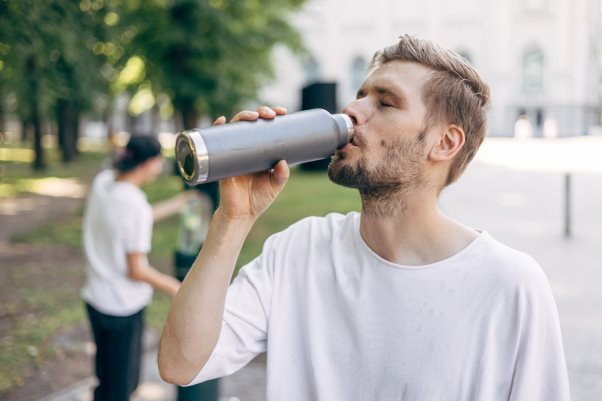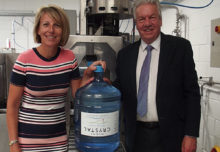 The shortage of small-pack bottled water has caused bottled water sales to drop as low as 25% of normal levels for some retailers, according to a recent report.
The shortage of small-pack bottled water has caused bottled water sales to drop as low as 25% of normal levels for some retailers, according to a recent report.
Manufacturing and logistical issues mean that even more people may now be in the mood to turn their thoughts to choosing different ways to hydrate.
This could be the perfect time for water dispensers to fill the gap – not only for business supplies but for consumers too. Many domestic water dispense systems are available and are becoming popular, not least because business decision-makers and consumers are choosing to avoid single-use plastics which can damage the environment.
There are many options from which to choose, depending on the circumstances.
In addition to traditional mains-fed and bottled water coolers, there are also touch-free countertop dispensing mains-fed water dispensers. Integrated tap systems are also becoming a big new trend. In fact, this is the fastest growing category in the water dispense sector, according to the latest research from Zenith Global. All of these can be installed in homes as well as offices.
Other new developments include the introduction of smart device app controls; microbial coating for touch areas; and other safety measures. There are also outdoor bottle refill water stations..
It is important to always use an accredited member of the WHA, to ensure safe, hygienic, and sustainable water dispense systems. Use the Find a Member service of the WHA to ensure the supplier is audited and trained correctly.
Jon Wicks, chairman of the WHA, said: “The water dispense sector has developed to meet changing modern needs. The water dispense industry has options to offer in place of single-use bottles. We have seen an increase of integrated tap systems, touchless machines, hospitality systems, and home water dispensers, all alongside traditional bottled water coolers and mains-fed coolers.”
Phillipa Atkinson-Clow, general manager of the WHA, added: “All these methods of dispensing that healthiest of drinks, water, have one thing in common: the provision of a safe, convenient means of drinking what is not only healthy but sustainable too. Our members play a key role in helping people move away from single-use plastics that could wind up in oceans or rivers. Using a WHA member, working to WHA-safe standards due to our Association’s auditing and training, makes sense as these systems are all providing safe, calorie-free, eco-friendly water.”




